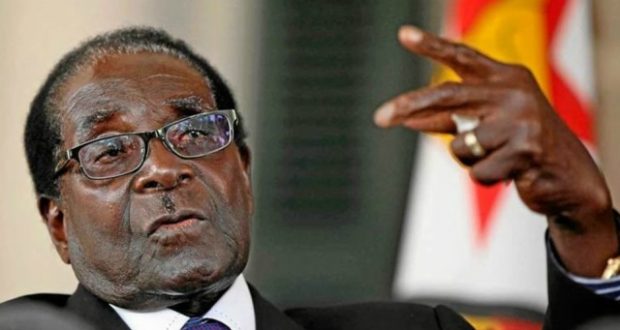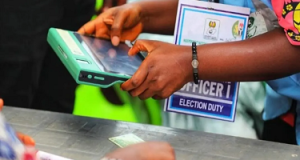The Ex-President of Zimbabwe, Robert Gabriel Mugabe must have been seen in the eye of African leaders’ context his fall, failure in government and frustrating economy without recourse to the past and how he ascended into the highest political office. Born into a poor Shona parents in Kutama, Southern Rhodesia on February 21, 1924. His father, Gabriel Matibiri, was a carpenter while his mother Bona taught Christian catechism to the village children. Mugabe’s parents Bona and Gabriel had six children: Miteri (Michael), Raphael, Robert, Dhonandhe (Donald), Sabina, and Bridgette Robert’s older brother Raphael died of diarrhea. In early 1934, Robert’s other older brother, Michael, also died, after consuming poisoned maize.
Mugabe, as a teacher, he taught at various schools around Southern Rhodesia, among them the Dadaya Mission school in Shabani. There is no evidence that Mugabe was involved in political activity at the time In 1949 he won a scholarship to study at the University of Fort Hare in South Africa’s Eastern Cape. There he joined the African National Congress and attended African nationalist meetings, where he met a number of Jewish South African communists who introduced him to Marxist ideas. He later related that despite this exposure to Marxism, his biggest influence at the time were the actions of Mahatma Gandhi during the Indian independence movement. In 1952, he graduated with a Bachelor of Arts degree in history and English literature
It should not be forgotten in a haste that Mugabe angered by dominance by the whites who claimed possession of lands owned by the Zimbabweans and used those lands for farming and other economic activities, which were detrimental to the Zimbabwean citizens; fight against the abuse of human dignity of an average Zimbabwean by the whites and his rugged and dogged fight for the emancipation of the land from its colonial masters.
In his effort to pursuing decolonization, Mugabe’s government emphasized the redistribution of land controlled by white farmers to landless blacks, initially on a “willing seller-willing buyer” basis. Frustrated at the slow rate of redistribution from 2000, Mugabe encouraged the violent seizure of white-owned land. Food production was severely impacted, generating famine, international sanctions, and drastic economic decline. His actions, which were adjudged by the whites of making anti-government comments, he was arrested on his return to Southern Rhodesia in December 1963, convicted. His trial lasted from January to March 1964, during which he refused to retract the subversive statements that he had publicly made. In March 1964 he was sentenced to 21 months imprisonment. Mugabe was first imprisoned at Salisbury Maximum Security Prison, before being moved to the Wha Wha detention centre and then the Sikombela detention centre in Que Que. At the latter, he organised study classes for the inmates, teaching them basic literacy as well as mathematics and English. Sympathetic black warders smuggled messages from Mugabe and other members of the ZANU executive committee to activists outside the prison.
Upon his release from prison, he contested, won and led Zimbabwe as Prime Minister from 1980 to 1987. He chaired the Zimbabwe African National Union (ZANU) group from 1975 to 1980, and led its successor political party, the ZANU – Patriotic Front (ZANU–PF), from 1980 to 2017. Ideologically an African nationalist, during the 1970s and 1980s he identified as a Marxist-Leninist. He served as the President of Zimbabwe since 1987 to December 2017 in whose administration expanded healthcare and education though he adhered largely to conservative economic policies. He has been praised as a revolutionary hero of the African liberation struggle who helped to free Zimbabwe from British colonialism, imperialism, and white minority rule.
The fall of President Robert Mugabe began in late 1987 when Zimbabwe’s parliament amended the constitution. On 30th December it declared Mugabe to be executive President, a new position that combined the roles of head of state, head of government, and commander-in-chief of the armed forces.[246] This position gave him the power to dissolve parliament, declare martial law, and run for an unlimited number of terms. By this act, unlimited opportunities and powers were conferred on Mugabe. In January 1992, Mugabe’s wife died. Meanwhile, Mugabe had secretly been having an affair with his secretary Grace Marufu since 1987 and that she had born him a son and a daughter. His secret revealed, he had a well attended wedding where over 12,000 people were invited to the August 1996 ceremony. In the middle 1990s, Mugabe government went down the drain in education, health, land reform, and employment.
On 15 November 2017, Mugabe was placed under house arrest by the Zimbabwe National Army in a palace coup d’état. On 19 November, he was sacked as leader of ZANU-PF, resigned on November 21, 2017 amidst impeachment by the Zimbabwean Parliament and Emmerson Mnangagwa, the former Vice President was appointed in his place. Zimbabwe, a country of about 16 million people has 16 official languages with English, Shona, and Ndebele the most commonly used.
The rise and fall of Robert Mugabe came because he, as a historian did not learn from Nelson Mandela of South Africa who despite series of appeal to recontest after one tenure of post prison experience, refused, step aside as President and allowed others to continue from where he stopped. He was moved by the Delilaic appeals, request and pressure but rather, he followed the foot-steps of Liberian former President, Charles Taylor to out stage himself from what he built over years.
One outstanding thing with most political leaders especially, African leaders are their refusal to learn from their predecessors. Like Robert Mugabe if learnt from the fall of Charles Taylor, would have acted wisely. Robert Mugabe may not be the only culprit of the sit-tide-role in Africa. Where hearing of a-37-year-rule one may scream. Time has come for other African leaders who are in the similar shoes of Robert Mugabe to quit the stage because their military may not be civil enough to make request. This call directly goes to Paul Biya who has ruled Cameroon for fourty two (42) years; Teodoro Mbasongo – Equatorial Guinea (38 years); Hu Sen – Cambodia (32 years); Yoweri Museveni – Uganda (31 years); Omar Al-Bashir – Sudan (28 years) among others.
This issue of sit-tide-in-office does not limit only to African leaders however, there are scores of non African leaders who also are culprit and culpable of this similar case. Though we may be quick to judge and lay outrageous blames to African leader. For instance, Nursultan Nazarbayev has ruled Kazakhstan for the past 33 years. Nursultan Nazarbayev has been only known leader since its independence from the Soviet Union and no election since then have been recognized as free and fair. Ali Khamenei ruled Iran for the past 36 years. The big question is, are they waiting for military action before they quit offices? Military in their countries may not be as civil and patience like that of Zimbabwe hence, need for ugent action. What should I say about Franklin Delano Roosevelt, the longest serving President of the United States of America who served on the record of four terms as against the conventional two terms.
In Nigeria, being a heterogeneous nation in all facets and dignity successfully quelled such attempts from her former leaders and rulers such as General Ibrahim Badamosi Babangida who wanted to make himself live president but the normal Nigerian pressure forced him out of office. Late General Sani Abacha also attempted to convert himself to civil leadership with plans for life president met NATURE on the way. Worthy of mention is Olusegun Matthew Obasanjo who had the opportunity of being Nigeria Military Head of State for three years, contested for president, won as civilian for two consecutive terms of four years each and attempted to go for the third term but Nigerians showed him the way out of the Aso Rock Villa.
Credit be given to the Zimbabwean army general and Commander of the Zimbabwe Defence Forces led by General Constantino Guveya Dominic Nyikadzino Chiwenga born on August 25, 1956. He is the chairman of the Joint Operations Command, which comprises the commanders of Zimbabwe National Army, Prison Services, Central Intelligence Organisation, Zimbabwe Republic Police and the Air Force of Zimbabwe. The country does not have Navy as a result of the land locked nature of their country. General Chiwenga in carrying out his palace coup displayed patriotism to his country by not shading blood and or usurping authority in fronting himself as the country head of state and government, given all the powers within his disposal unlike similar coups in Nigeria and other African countries.
 Newsfront Online …Telling the Public as it is
Newsfront Online …Telling the Public as it is




